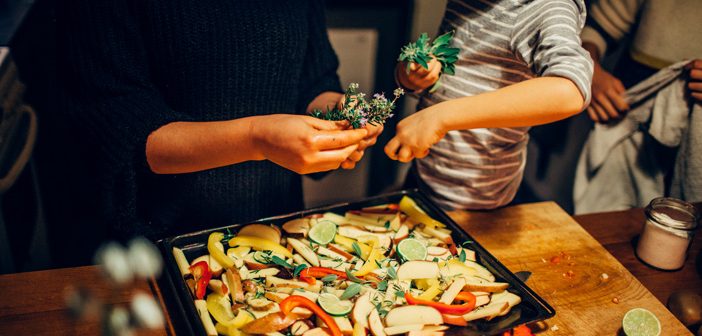Budgeting, especially during times of inflation, can mean looking for ways to reduce costs without sacrificing quality of life. Relying less on take-out or ready-to-eat food and more on your own meal prep can help achieve this. However, even these costs can spiral if you aren’t careful. Here are six ways home cooks can spend less on the food they prepare.
1. Cook With What’s In Season
Prices on many foods, particularly fruits and vegetables, vary significantly throughout the year. Anything that is in season will be considerably less expensive. Cooking with these foods is an easy way to save. In-season foods almost always taste much better as well. While seasonal cooking will limit options, the savings are well worth it.
2. Plan Out Meals
One of the big secrets to saving money is to exert greater control over the spending process. Planning out meals is a fantastic way to do this. Making a meal plan will allow home cooks to take stock of how they are spending money and areas where they can save. Planning meals also makes it easier to make healthy choices.
3. Buy Cheaper Cuts Of Meat
Meat is one of the most expensive categories of food; that means opting for lower-cost meats is one of the best ways to save. Fortunately, cheap cuts of meat can still be delicious, especially in the hands of a skilled cook. Some of the top choices for inexpensive cuts of meat include chicken thighs, pork shoulder, chuck steaks, and ground turkey.
4. Eat More Non-Meat Protein
While saving on meat is undoubtedly possible, choosing other proteins can garner even more savings. Some of the best options include eggs, canned fish such as tuna and sardines, and legumes such as lentils, chickpeas, and beans. Even better, these proteins are all fantastic for your health. For families that may not be pleased with the missing meat, try starting with just one day a week. For example, meatless Mondays may be a great way to kick off the week.
5. Don’t Waste Food
Sadly, many people throw out hundreds of dollars of food every year. The secret to avoiding this sort of waste is to track when food is likely to go bad, making sure to eat it before that point. The other key is not to buy foods you are unlikely to eat. For example, if you don’t like the taste, there’s no point in purchasing kale, no matter the health benefits. Finishing off leftovers is essential too.
6. Buy In Bulk
As a general rule, the more of a particular product you buy, the less it costs. Therefore, bulk purchases can result in considerable savings. However, there are risks to buying in bulk. Home cooks must be sure they will actually use what they buy. Pay attention to the shelf-life of what you buy and consider your storage space when buying in bulk.
There are many reasons to cook at home. One of the most significant advantages is the potential savings. With discipline and the aid of the six tips presented above, you can easily spend less on food.
When buying food, use this as an opportunity to earn and save even more. Your Credit Union has a couple of useful tools. Our credit cards not only offer better interest rates than those offered by banks and retailers, but give the same generous rewards/cashback points on all purchase categories and that includes groceries (up to 3% back).
Alternatively if saving is your goal, enroll in our free Round It Up savings program to save more effortlessly. Each time you use your Credit Union Debit Card, your purchase is automatically rounded up to the nearest dollar. The difference is transferred to a designated savings account and grows with interest. It’s surprising how quickly the cash can add up.





